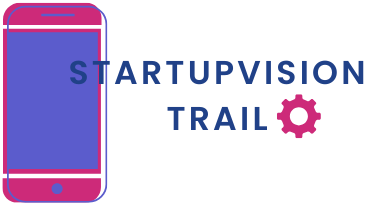Table of Contents
ToggleIn today’s fast-paced digital landscape, cloud-based solutions have emerged as a game-changer for businesses of all sizes. These innovative tools offer flexibility, scalability, and cost-efficiency, allowing organizations to adapt quickly to changing market demands. With the ability to store and access data from anywhere, companies are embracing the cloud to enhance collaboration and streamline operations.
As more businesses recognize the advantages of cloud technology, understanding its various applications becomes crucial. From data storage to software as a service (SaaS), cloud-based solutions are transforming how organizations operate, making them more agile and competitive. This article delves into the key benefits and trends shaping the cloud landscape, helping readers navigate this essential shift in technology.
Overview of Cloud-Based Solutions
Cloud-based solutions play a crucial role in modern business strategies. They provide organizations with various tools and services that enhance operational efficiency and flexibility.
Definition and Key Features
Cloud-based solutions refer to services delivered over the internet, encompassing data storage, computing power, and software access. Key features include:
- Accessibility: Users can access services from anywhere with an internet connection.
- Scalability: Organizations can easily scale resources up or down based on demand.
- Cost-Effectiveness: Many solutions operate on a pay-as-you-go pricing model, optimizing budget allocation.
- Automatic Updates: Software remains current without manual intervention.
- Collaboration Tools: Facilitate real-time collaboration among teams.
Types of Cloud-Based Solutions
Cloud-based solutions can be categorized into three primary types:
- Infrastructure as a Service (IaaS): Offers virtualized computing resources over the internet. Examples include Amazon Web Services (AWS) and Microsoft Azure.
- Platform as a Service (PaaS): Provides platforms for developers to build, test, and deploy applications. Popular examples include Google App Engine and Heroku.
- Software as a Service (SaaS): Delivers software applications via the cloud, eliminating the need for local installations. Common examples include Salesforce and Microsoft 365.
Each type provides unique advantages that align with varying organizational needs.
Benefits of Cloud-Based Solutions

Cloud-based solutions offer numerous advantages that significantly improve business operations. Key benefits include cost efficiency, scalability, and flexibility.
Cost Efficiency
Cost efficiency represents one of the main advantages of cloud-based solutions. Businesses can save on hardware costs by utilizing cloud resources instead of investing in on-premises infrastructure. Monthly subscription models allow organizations to budget more effectively and eliminate unforeseen expenses. Moreover, companies only pay for the resources they use, reducing overall operational costs. According to a 2021 report by TechCrunch, companies can save up to 30% on IT expenditures when switching to cloud services.
Scalability and Flexibility
Scalability and flexibility are critical benefits of cloud-based solutions. Businesses can quickly adjust their resources based on demand, easily scaling up or down as necessary. During peak times, organizations can allocate additional cloud resources to ensure performance, while reducing capacity during slower periods to save costs. Cloud solutions support rapid deployment of new applications and services, enabling businesses to respond swiftly to market changes. In a survey conducted by Gartner in 2022, 70% of companies reported that increased flexibility in their resources significantly improved their operational agility.
Challenges of Implementing Cloud-Based Solutions
Cloud-based solutions present notable challenges that organizations must navigate. Key issues include security concerns and potential downtime, which can impact service reliability.
Security Concerns
Security concerns remain a top priority when implementing cloud-based solutions. Organizations face various risks, including data breaches, unauthorized access, and compliance issues. Many cloud providers invest in robust security measures, yet vulnerabilities still exist due to shared environments. A report by McAfee indicated that 52% of organizations experienced a cloud-related security incident in 2022. Businesses must implement strong encryption, access controls, and continuous monitoring to mitigate these risks effectively.
Downtime and Reliability Issues
Downtime and reliability issues can significantly disrupt business operations. Cloud service providers may experience outages caused by software bugs, natural disasters, or cyberattacks. According to a 2022 survey by Gartner, businesses reported an average downtime of 1.6 hours per month, affecting productivity and customer satisfaction. To address these concerns, organizations should assess service-level agreements (SLAs) for uptime guarantees and develop contingency plans to minimize the impact of service interruptions.
Key Players in the Cloud-Based Solutions Market
The cloud-based solutions market features dominant providers and emerging technologies that shape its landscape. Key players include established service providers and innovative companies driving advancements in cloud technology.
Major Service Providers
- Amazon Web Services (AWS)
AWS leads as a comprehensive cloud platform, offering over 200 fully featured services. Notable services include Elastic Compute Cloud (EC2) for virtual computing and Simple Storage Service (S3) for scalable data storage. AWS commands approximately 32% of the global cloud market share.
- Microsoft Azure
Azure offers a broad range of cloud services, including computing, analytics, storage, and networking. Azure’s integration with Microsoft products and services attracts enterprises, contributing to its 20% market share.
- Google Cloud Platform (GCP)
GCP emphasizes machine learning and artificial intelligence, providing tools like BigQuery for data analysis. With a market share of about 9%, GCP attracts developers and data scientists for its robust analytics capabilities.
- IBM Cloud
IBM Cloud provides a mix of IaaS, PaaS, and SaaS solutions tailored for enterprise needs. The platform focuses on hybrid cloud strategies and enterprise security, appealing to businesses seeking customized solutions.
- Oracle Cloud
Oracle Cloud offers a suite of applications and services designed for database management and enterprise resource planning (ERP). Oracle’s emphasis on data security and performance positions it as a key player in the database-as-a-service market.
Emerging Technologies
- Multi-Cloud and Hybrid Cloud Solutions
Multi-cloud strategies enable organizations to utilize services from multiple cloud providers, enhancing flexibility and avoiding vendor lock-in. Hybrid cloud solutions combine on-premises infrastructure with cloud resources, allowing businesses to optimize workloads based on performance and cost.
- Serverless Computing
Serverless architecture allows developers to build and run applications without managing servers. This technology automatically scales applications and simplifies deployment, significantly reducing operational costs and time.
- Artificial Intelligence and Machine Learning Integration
AI and machine learning integration into cloud platforms enhances data management and analytical capabilities. Businesses leverage these technologies for predictive analytics, automation, and personalized customer experiences.
- Edge Computing
Edge computing processes data closer to the source, reducing latency and improving response times. This technology is critical for IoT applications, enabling faster decision-making with minimal delay.
- Containers and Kubernetes
Containerization technology, such as Docker and orchestration platforms like Kubernetes, allows for efficient application management. Containers enable developers to easily deploy applications across different environments while ensuring consistency and scalability.
Future Trends in Cloud-Based Solutions
The future of cloud-based solutions centers around innovation and adaptability, driven by technological advancements such as AI, machine learning, and tailored industry solutions.
AI and Machine Learning Integration
AI and machine learning enhance cloud capabilities by automating tasks and analyzing large data sets. Organizations leverage AI to create predictive models, optimize resource allocation, and improve decision-making processes. According to a 2023 report from Deloitte, 61% of businesses utilize AI in their cloud strategies, indicating significant growth in automation and intelligence. Cloud service providers, like AWS and Azure, offer integrated AI tools, allowing companies to deploy machine learning models without extensive infrastructure investment. This trend reduces operational costs while increasing efficiency in data processing and analysis.
Industry-Specific Solutions
Industry-specific cloud solutions emerge to address unique organizational needs. Sectors like healthcare, finance, and retail benefit from tailored applications, enhancing operational efficiency and compliance. For instance, the healthcare sector utilizes cloud platforms for electronic health records management, ensuring data security and regulatory compliance. A study by Frost & Sullivan in 2023 found that 48% of healthcare organizations reported improved patient care through cloud adoption. Custom solutions in finance facilitate real-time analytics and fraud detection, boosting security and performance. As more industries recognize the importance of specialized cloud solutions, providers innovate to create packages that meet particular regulatory and operational challenges.
Cloud-based solutions are reshaping the business landscape by enhancing operational efficiency and enabling organizations to thrive in a competitive environment. With their unique features like scalability and cost-effectiveness, these solutions provide businesses the agility needed to adapt to changing market demands.
As organizations continue to embrace cloud technology, the focus will shift towards leveraging advanced capabilities such as AI and machine learning. This evolution not only drives innovation but also paves the way for industry-specific solutions that address unique challenges.
While security and downtime remain critical considerations, proactive measures can mitigate these risks. Ultimately, the future of cloud-based solutions looks promising as they evolve to meet the diverse needs of various sectors, ensuring that businesses remain competitive and resilient in an ever-changing digital world.





